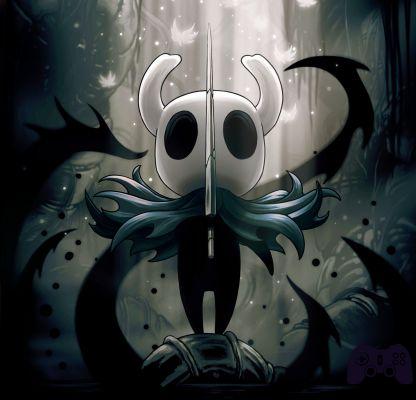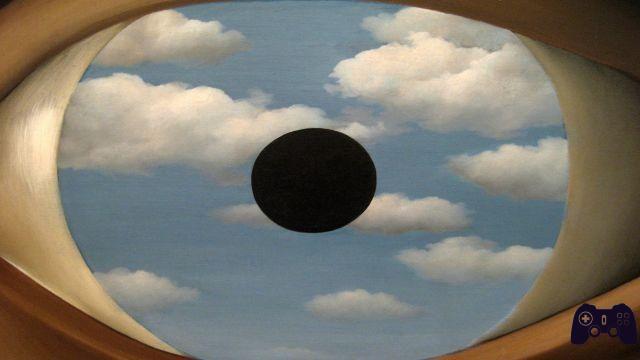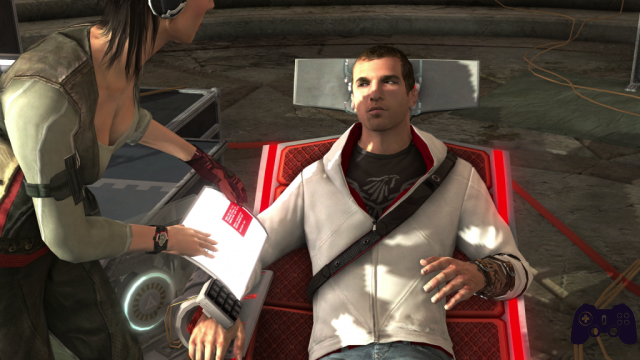
Who are we, blessed enough to share our stories like this?
To talk to us through the centuries?
The words spoken by Ezio Auditore in one of the most exciting sequences of the saga perfectly describe the phenomenon Assassin's Creed. Because like Desmond, the players are really blessed: an advent like that of the Ubisoft series, capable of overflowing from the embankments of the videogame medium - and also, it must be acknowledged, to continually get involved, despite what is the common perception - you don't see it being born and growing every day, and in the history of our industry only a handful of other intellectual properties have had such a dramatic impact on the collective imagination. And we've all been paying spectators - and happy to pay, for much of the show - with front-row tickets, so close to the heart of the action that at times they can convince themselves that they are part of the action. If you are now at the turn of your twenties, perhaps you know that the previous generation (that of your parents, so to speak) speaks in these terms of Tomb Raider, Doom or some remnant of war from the golden age of cabinets.
Instead, you will bore your children by talking to them about the Assassin's Creed phenomenon
Because beyond what you can think of the series and what it has become, going beyond the image of the alleged and greedy Monster of Florence of the industry that you can have of Ubisoft, we must recognize this: Assassin's Creed is a Property Intellectual who managed to go beyond the current video game, embracing other media with a depth that has little to do with the classic spin-offs and commercial operations of this type (from which the series was not exempt, however, especially if you look at the dedicated novels) and becoming one of the first and the largest cross-media product born of our world. Something that only a billion dollar colossus had practically succeeded at this level like Star Wars (grant us the 90s VHS label, that's how we got to know George Lucas). But never as in this case it is necessary to proceed in order, going back more or less literally in time in search of the synchronic joint that justifies an introduction of this magnitude. Because we would also be Leccacullo, but we are certainly not lickers ...
Plots, before plots were mainstream
Years and years of Voyager that become a collective feverPlanet Earth in 2008 - the release year of the first and very crude chapter of the series - was a very different place from the Earth-2017 we live in today. How different? Enough to be able to exploit the undoubted charm of some pseudo-prophecies (if not real conspiracy theories) that years and years of television programs like Voyager had spread globally. Charm that among other things, with the looming of the infamous December 21 2012 - the end of the thirteenth cycle of the Mayan calendar and date connected to all sorts of prophecies about the end of the world - could only be in full boil. And it is therefore natural that a title like the first Assassin's Creed, thanks to all this, has managed to establish itself as a real sleeper hit. despite the obvious and obvious structural defects. When he was young the show had freedom, but he didn't see it; or rather, he did not let the player glimpse it, caging him in a series of repetitive actions - net of the inevitable bugs that will keep Desmond company inside and outside the Animus - which made everything a very raw pad in hand. Yet as mentioned, the charm, under the blanket of problems and flaws, there was everything. Both as regards the events of Altaïr Ibn-La'Ahad, a member of the mysterious sect of the Assassins and in the midst of the secret war with their historical nemesis (the Templars), and above all for the characterizing trait of this first phase, the timeline of the present that sees the war between the two sides still in progress but in a much more subtle and conspiratorial way.
The key to success lies right here, in exploit historical courses and recourses inserting them into the narrative fabric of the series to increase the appeal of the events and give them a solid and credible - although you could easily use the adjective incredible - plausibility within the alternate story told by Assassin's Creed; idea that allows you not only to forget how much pad in the hand did not work in the role of Altair, but of fall madly in love with the brand when, on the other hand, the Florentine fabrics of the aforementioned Ezio Auditore are dressed. Because on the one hand everything that sounded great at Masyaf sounds even better in the Renaissance Florence of the Medici, in Venice or in the Romagna countryside reconstructed on the screen, while on the other all the discordant notes are cut: perhaps less freedom, true, but more balance , more fun, less sense of boredom - so much so that we are even sorry not to be able to freely replay some sequences, having to start the experience from the beginning and return to the point and period that you want to relive. IS it matters little if from now on the inquisition committee behind the criticism of the series will point out that the AI of the enemies is far from brilliant, that it is a stealth experience in rose water (from the software house of Splinter Cell shame!) and that then the formula of the series will be repeated until this game has bored me. Assassin's Creed II is the perfect manifesto of why the package has become what it has become - the latest great gaming phenomenon.
"Yes, but Assassin's Creed is always the same!"
Estic * zzi. Especially in those years the series is not played for what it is playfully, but for everything else, for that outline which is taking over - and which will then take it with macroscopically tragic effects. Because after Assassin's Creed II comes Assassin's Creed Brotherhood, what everyone from the announcement hailed as a good spin off just to make money waiting to return to the main course with the third chapter but which then in reality proved to be the third moral chapter of the series. In fact, Brotherhood, as we will see, does everything that one would have expected from a real sequel: it evolves and refines the gameplay side - it is true that nothing is real, everything is legitimate, but undoubtedly Brotherhood goes to insert some goodies that improve the 'User Experience - and carry on the story. That of Ezio, who we see grappling with the consequences of his choices, in the path that will lead him to become the Mentor of the Brotherhood and one of the most important Assassins in history, but above all that of Desmond, laying the foundations for what it had all the credentials to be the most visceral twist seen in the medium for many years now.
"Yes, but Assassin's Creed is always the same!"
Maybe. Why Revelations, unfortunately, can't hold a candle to it with Brotherhood. The exciting moments are certainly not lacking - we opened with a quote taken from this chapter, and also in this case the "extra chapter" released in the form of a film, Embers, manages to close Ezio's parenthesis more than with dignity. of history. But for long stretches the experience is at the mercy of a player who, although grown up thanks to the introduction of the hidden blade, it leaves very little else to a player / spectator who had created himself certain expectations. Fault of that famous, wonderful and cursed at the same time trailer shown at E3 2011, which managed in three minutes and quick to stir up the viewer and build huge expectations due to constant references to the first chapter. Not only the ghostly presence of Altair, but also of a character who has in all respects the features of Roberto of Sable, Grand Master of the Order of the Templars and main antagonist for most of the hours of the first chapter.
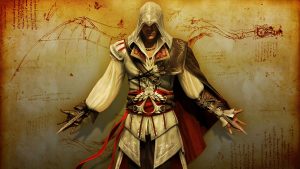
To learn more:
Assassin's Creed: The Ezio Collection
Mental movies that could only spread like a fire, but unfortunately, once the disc was inserted into the reference console that you had at the time, they were already disregarded in the first few bars of the game. But Desmond is certainly no better, in a coma for plot reasons but - until the release of the usual DLCs - unable to resume the discourse started at the end of Brotherhood, to deepen in-game everything on which the fans had speculated through works and collateral clues on the Siren project, code name of the most successful plan of Warren Vidic ("mad scientist", not so mad, who orchestrated the capture of Desmond in the first chapter). To discover that the daring escape of Assassin's Creed II, the final with a lot of Eagle's Eye of the first chapter and also a good part of what happens between Desmond and Lucy in Brotherhood must be seen in a new light, that of the most unexpected betrayal - and precisely for this more painful - it is destabilizing. Or rather it would have been, if Revelations had also focused on this aspect rather than introducing it on the sly and leaving all the dirty work to The Lost Archive (the DLC connected to the title, in fact). Betrayal yes, but at this point also towards an audience hitherto treated with respect and refreshed with many extras - from comics to games released on Facebook such as Project Legacy, capable of going to deepen stories, characters and historical clues as and even better than the Glyphs of the main series. A disappointment that has no precedents in the series, but which unfortunately finds a clear - and in some ways even worse - successor when it comes to the third chapter, the one that ideally had to close the first narrative arc of the series and lead it towards its natural phase two. .
The (almost) fall of the myth
What we conventionally call the "second phase" began under the best auspices, but over the years it has turned out to be the worst part of the whole saga, despite the fact that something good has been done and how, and the graphics, in the transition between the penultimate and the 'last generation has actually improved exponentially, as evidenced by Syndicate, the last great title dedicated to the series. In order to fully conceive of what went wrong, however, we need to take that step back and underline what Pietro - trusted webmaster and defense lawyer of Unity - has expressed a little above: Expectations were high for Revelations, and we saw how it ended.
There is therefore no need to overwrite what has already been reported: the new route is not always better than the old one.
What happened to Desmond?Nine titles of the Assassin's Creed saga have been developed and published so far, in addition to Ezio Remastered, a small games released on Facebook, and three chapters in 2,5 D created if only to exploit a brand that had now received more praise than criticism. Sometimes, however, we tend to forget that in addition to Renaissance Florence, revolutionary Paris and Victorian London, there is a small part dedicated to the present, whose plot still appears more than confused today due to cutscenes thrown there, which have not well explained things that maybe we all would have liked to see already a few years ago. Assassin's Creed III marks a new beginning with a new character, Connor (or Ratonhnakéton if you prefer), but also the end of something that everyone has been waiting for for years: the epilogue of the story dedicated to Desmond Miles. We are probably not talking about the most charismatic and brilliant character in the history of videogames, mind you, but combining a game with one of the most discussed themes of those years (the end of the world on 21 December 2012), certainly facilitated the saga to be talked about. . A new beginning and an ending. Beautiful and good antithesis.
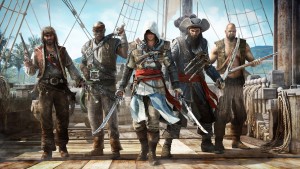
To learn more:
Assassin's Creed IV: Black Flag
Antithesis that left a bad taste in our mouth twice. Yes, because Desmond's silent death (toh, sorry for the spoiler) left us dumbfounded, and many players, looking at the final scene of the game, will surely have wished that the whole year that awaited them in order to get their hands on the next chapter of the game. series passed as quickly as possible. What will become of Juno? Are Shaun and Rebecca still alive? What happened to Desmond? As we know, however, it was all in vain: in the next title, Black Flag, it almost seems that nothing happened, as if Mr. Miles had never existed. But more bitter than the amaro Lucano there is the bitterness that can leave in the mouth Assassin's Creed, which with chapter III was to give life to a radiant new beginning of the series: was it really so? Meanwhile, Ubisoft, as always, released yet another masterpiece trailer, which revealed the setting of this new chapter: the United States of the American Revolution.
Surely the vast majority of gamers would have liked to relive, with the new titles of the saga, the events of the assassins against the backdrop of a beautiful videogame country, once again. But the days of Assassin's Creed II and Brotherhood are over, there is a new era to carry on, cheers!
"Yes, but Assassin's Creed is always the same!"
You'd like it! Faced with breathtaking settings, and the novelty represented by the father-son relationship, we find - in chapter III of the saga - a stagnant character, almost devoid of charisma, who fails to be fully appreciated by the fans, who sometimes prefer the Templar Heythan. IS where did that American revolution that was glimpsed inside the trailer? Here she is appearing in perhaps one of the most ugly missions of the entire series, the one in which we find ourselves having to constantly hide behind huge boulders before the enemy troops fire rifle shots and lead poor Connor to death. Finally, a factor is missing that may be important for some and less for others: but who are these characters? Yes, why here we must also do some criticism and self-criticism. Gone are the times of the Pazzi, the Medici, Machiavelli and the Borgia, characters we knew quite well; in Assassin's Creed III there are Charles Lee, Benjamin Church, John Pitcairn and others, who are not as famous as those mentioned above, and therefore have not given that extra something present in other titles. Comparing King Richard, Lorenzo de Medici himself, Blackbeard, Napoleon or Queen Victoria with the characters presented in Assassin's Creed III is quite impressive.
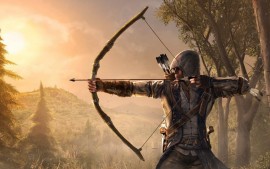
To learn more:
Assassin's Creed III
In short, what seems evident is that the end and the beginning are united by a problem: the promises made and the expectations created have not been up to the situation, after Revelations, Ubisoft falls again, and this time in an even more thunderous way. The advent of the two new videogame beasts - PlayStation 4 and Xbox One brings many questions: what will be the future of the series? Do you already have to buy a new generation console or Ubisoft will listen to a huge number of gamers who cannot yet afford One or PS4? E3 - always (or almost always) blessed - clarified the situation.
"Yes, but Assassin's Creed is always the same!"
Parlè. Assassin's Creed IV: Black Flag however, he agreed on everyone ... doubly. First of all because the title was released for five consoles and for PC; Nintendo, Sony and Microsoft fans then managed to get their hands on this title considered by many to be the best of this second phase. Yes, because Edward Kenway was a badass character who had nothing to do with the killers, and his character as a mercenary pirate offered a more than positive starting point, with a contrast (the one dictated by his lifestyle and that of the Creed) initially really marked, but that fades more and more as the plot progresses. But Black Flag managed to put together the things already experienced in the third chapter of the saga: the naval clashes worked and how they were even improved, so much so that thanks to our sailing ship we will also be able to clash with the great galleons of naval history.
A title different from the previous five chapters released, for the sake of those who still say "in manieva tvasgvessivissima" that Assassin's Creed has always been the same since its birth (a little clue if you haven't understood it: you are too biased, it is absolutely not so) . This title represented something never seen before, with a mix of novelties and features already appreciated by the public in the past that led to a particular and more than subjectively beautiful final result. A few weeks after the release of Black Flag, many and different rumors began to make their way on the cybernautic paths: "The next title will not be released soon", "information leaked: Assassin's Creed will be set in Greenland", "What? I've read about Paris! ”. Ah, the dear people of the internet.
"Yes, but Assassin's Creed is always the same!"
Doubly No. It is November 11, 2014. Something sensational, which probably never happened in the history of video games, happens. In North America (and two days later in Europe) two different titles dedicated to the saga are released: Arrogant e Unity. Underestimating this point would be wrong for two different reasons:
1) In the history of today's media, whether they are movies, TV series or video games, in fact, such a thing had never been witnessed
2) Ubisoft is now aware of having a huge fan base, certainly one of the largest in the world, and wants to make all fans happy, but also knows that there could be a considerable economic return.
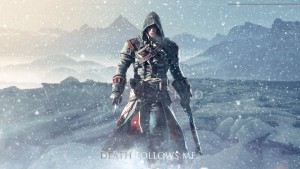
To learn more:
Assassin's Creed Rogue
Rogue and Unity are very different titles from each other: the first takes up what was already good with Black Flag, while the second, from the gameplay point of view, takes full hands on what we have defined the first phase. The two titles in question, however, cannot be juxtaposed in any way if not taking into consideration the last part of Rogue and the first of Unity, the only real bridge (and what a bridge!) that connects the dynamics of the two protagonists Shay Patrick Cormac and Arno Dorian. We still wonder today if Ubisoft's move was spot on or not. The two titles were widely criticized, but for two different reasons.
Are Templars Really Evil?Rogue, that we could playfully define "Templar's Creed" (but how nice are we?), puts us for the first time in the shoes of a Templar, a group that we have been fighting since the very first title of the saga. To make us live this new experience, the French-Canadian house had to change the cards on the table not a little: how to empathize with the enemy? But above all, how to make hostile characters who until a few months before were our faithful allies (RIP Adéwalé)? Yet despite some basic problems, dictated also and above all by a certain repetitiveness, Assassin's Creed Rogue shows a point of view that sooner or later Ubisoft had to show: Are Templars Really Evil? Cormac is not a fool, on the contrary he is a character who holds the Creed even more than many other famous assassins; but the death of thousands of people that occurred during the famous Lisbon earthquake and caused within the title by the same protagonist changes it radically, marrying the motto "may the father of understanding guide us" and thus becoming a Templar in all respects. What does this mean? It means that beyond a few features that are undoubtedly reminiscent of Black Flag, there is a new way to approach the game. For the very first time we feel not only hunters but also prey: the killers hide as we always have, but above all the killers can kill us with a single shot thanks to the hidden blade; in short, all this creates an atmosphere full of pathos that will modify the approach to the game.
Unity it represents a return to origins… which in reality did not happen. The title was criticized a lot due to the infinity of bugs and glitches that gripped the published versions (especially the problems were very visible for PC); all accompanied by a plot that was always considered useless and that made little impression on the fans. Unity is not in our opinion the best game of the saga, but it shows, probably better than any other chapter, the true essence of the earth and the time in which the title is set. The French Revolution can be felt throughout the city of Paris. The inhabitants have not been recreated in a superficial way: there are hardly any passersby who appear; there are those who scream, those who cry, those who are stopped by their companions in order not to make mistakes. In short, what must also have been in Assassin's Creed III and that was not created, is revived in an exemplary way in Unity, which finally presents a solemn soundtrack and a love story that puts the chills as it is told.
Yes, but Assassin's Creed is always the same! "
In 2D? Really. We know very well that big brands are often squeezed to the bottom and the IP Assassin's Creed did not have such a different fate. Comics, minigames and above all the film released in the cinema in the very first part of 2017 are perhaps the most striking examples we can do; but a great novelty is often underestimated, which has had some success and on which Ubisoft has continued to work. We speak of course of the three titles created with 2,5 D graphics that have not brought anything to the saga, but which have also extended this world to other players. Russia, India and China, these are the games that have become part of the series called Chronicles, which traces the deeds of three little-known assassins who have done so much for their lands. We are certainly not talking about masterpieces - on the contrary, the haters have only felt pleasure from the release of these games because, as always, talking bad about something is now fashionable - but about three pleasant alternatives that lovers of the saga will certainly have appreciated, although it is absolutely impossible. cry out to the miracle.
"Yes, but Assassin's Creed is always the same!"
Are you sure? Raise your hand if you didn't expect Victorian London as the setting for Assassin's Creed. The City of the second half of the 1800s was the ideal set for a title of the saga, and in fact probably what remains in the hearts of the fans most are the streets. Yes why Syndicate it is certainly not the best game dedicated to the series, quite the contrary, but from a graphic point of view it has no rivals if we take into consideration the other chapters of the saga (Origins excluded). Alas, however, the criticisms made of the game are more than justified: the Frye brothers (yes, we will move two twins with a decidedly different character) do perhaps too little; too stereotyped protagonists who meet historical and famous characters of the time (which in turn give little or nothing to the title), Syndicate appears to all intents and purposes as that transitional title that gives nothing to the series; the problem, however, is that this title represents and will represent an important watershed between the past and the future ... because a third and hopefully better phase is about to arrive in a few months ...
"Yes, but Assassin's Creed is always the same!"
And then you haven't read what we wrote.





